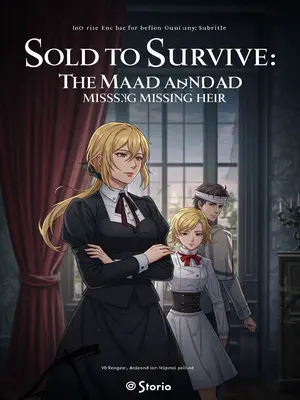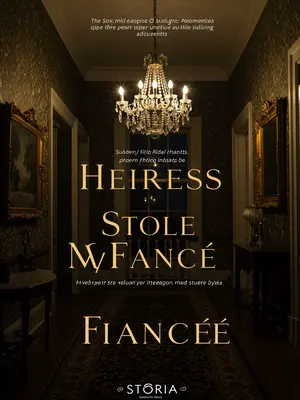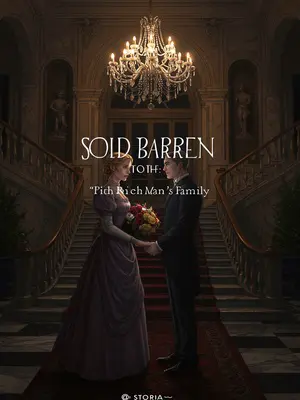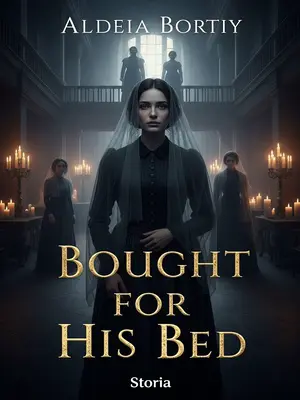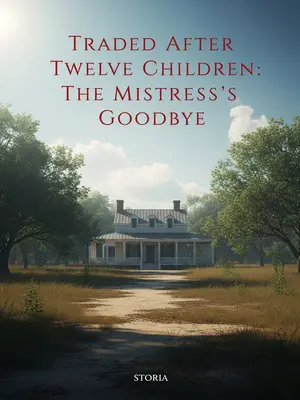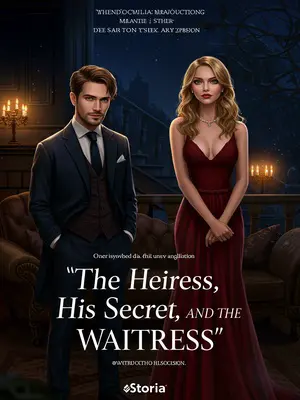Chapter 3: The Funeral and the Aftermath
To show off his generosity, Mr. Sullivan even gave my sister a grand funeral.
He went all out—limos, flower arrangements, a casket so expensive it looked ridiculous beside our old house. People talked about it for weeks, calling it a display of respect, but everyone knew it was about appearances. Mr. Sullivan’s reputation was spotless, thanks to my sister’s sacrifice.
When my sister was alive, she had to wait for holidays to eat a caramel apple.
That cheap treat was a once-a-year thing, something she dreamed about all December. After she died, the tables groaned with catered food, silver platters, imported sweets. It was obscene, all that luxury for a kid who’d never even had her own birthday party.
But after she died, the funeral was filled with luxury cars and lavish banquets.
The parking lot sparkled with Cadillacs, BMWs, and Mercedes, the air thick with cigar smoke and the clink of expensive glasses. Men in dark suits traded business cards while women gossiped by the buffet. It felt more like a society gala than a funeral for a child.
On the day of the funeral, Dad was already at the police station, and I was the only one from our family present.
I stood alone in the cold, hands shoved deep in my pockets, watching the guests file past. Some nodded at me, most didn’t. My father’s absence was noticed by everyone—another mark against our family, another story for the town to whisper about.
Mom didn’t come—she was busy digging up my sister’s coffin.
They said she’d lost her mind, that she couldn’t accept it. I’d heard the neighbors whispering, saw them shaking their heads. She disappeared from the house the night before, and no one saw her until she stumbled into the cemetery, wild-eyed, clawing at the frozen earth.
That day, she held my sister’s body, dug from the grave, and sobbed to me, asking, how could there be a grand funeral for a child who died young? The Sullivans, just to save face, condemned my daughter to never rest in peace.
She cradled my sister, sobbing, “They dressed her up like royalty, but it wasn’t for her—it was for show. For them. She’s just a prop in their fancy funeral.” Her tears froze on her cheeks. My heart twisted at her pain, at the raw, unfiltered truth of it. The whole county would talk, but she didn’t care.
I watched my sister’s body in my mother’s arms. I tried to hold her little hand, but it was cold and stiff.
Her tiny fingers curled against my palm, lifeless and icy. I pressed my lips to her knuckles, hoping to warm them, but there was nothing left. My grief felt bottomless, an ache that would never go away.
I fetched a basin of water and gently wiped my sister’s face.
I filled a porcelain bowl at the kitchen sink, the water shockingly cold. With a soft rag, I wiped away the dirt and blood from her cheeks, smoothing her hair as best I could. It was the only act of kindness left to me. I whispered a promise that I’d never forget her, no matter what happened next.
I couldn’t stop crying, my heart aching, but my always-loving mother gripped my shoulder so hard her nails dug into my skin.
Her grip was fierce, almost punishing. Tears blurred my vision, but I didn’t pull away. Her pain poured into me, her desperation leaving deep crescent-shaped marks in my flesh. She was holding onto me like I was her last anchor in the world.
She said, “You must not cry. Later you have to smile and thank the Sullivans. Promise me, you must live well and always remember this day.”
Her voice was low, trembling but urgent. She wanted me to survive—no matter how much it cost. “Don’t let them see your pain,” she whispered. “Don’t give them the satisfaction.” I nodded, swallowing my sobs, feeling the weight of her command settle over me like a heavy blanket.
I looked at my mother’s hate-filled face and forced my tears back.
Her eyes burned with fury, not just at the Sullivans, but at the world that allowed this. I bit down on my lip until I tasted blood, blinking furiously to keep the tears at bay. I wanted to be strong for her, just this once.
I promised I would always remember today.
The words felt like an oath. I’d carry this day in my bones forever—the grief, the anger, the truth of who we were. It would shape everything I did from now on.
Mom knelt on the ground, holding my sister’s body, and suddenly bit my shoulder hard.
Her teeth left a crescent of pain, hot and sharp, grounding me in the moment. The pain shot through me, a physical brand I’d wear forever. I understood, in some strange way, that she needed to mark me—to make sure I’d never forget.
She bit with all her strength.
I gritted my teeth, refusing to cry out. My body tensed, but I didn’t move. This was my penance, my inheritance. A mother’s rage, a sister’s loss—all of it pressed into my skin.
But I didn’t want to dodge, because when she bit me, it felt like the three of us were hugging, as if we were protecting my sister together.
It hurt, but it was also the closest we’d been since my sister died. The bite was love and grief all tangled together. I let it happen, hoping it would bring us some kind of peace, however fleeting.
Only when my shoulder was covered in blood did Mom let go.
She slumped back, exhausted, hands trembling. I looked down and saw the blood soaking through my shirt. The pain throbbed, but I welcomed it. It was proof I was still alive.
The mother who was always gentle now looked like a madwoman, telling me to go receive the guests and never forget this day.
Her hair was wild, her eyes wild with sorrow. She shoved me toward the door, whispering, “Go. Remember. Don’t let them win.” I wiped my face, squared my shoulders, and went to face the crowd.
I forced a smile and went out.
My lips felt brittle, but I smiled anyway, just like Mom told me. People glanced at me, some with pity, some with calculation. I kept my head high, moving through the throng like a ghost.
It was my sister’s funeral, but it was the Sullivans’ main stage.
Mr. Sullivan stood front and center, shaking hands, accepting condolences as if he were the bereaved. The room was full of whispers, deals, and backslapping. The casket was just another decoration in their grand display.
Everyone came to offer condolences to Mr. Sullivan, while Rachel bragged with her friends at the door.
Rachel lounged on the steps, a little queen holding court. Her friends clustered around her, giggling behind manicured hands. They barely spared a glance for my sister’s coffin. It was all about the story—about Rachel, about her family, about the drama.
Her friends were amazed, asking in a flurry, “Did someone really die for you?”
They crowded close, hungry for gossip. “Was it true? Did someone really die for you?” Their voices overlapped, eyes wide with morbid fascination, as if Rachel were some reality show star.
Rachel pointed at my sister’s coffin, proudly saying, “Of course! If you don’t believe me, I’ll ask my dad to open the coffin and show you.”
She grinned, enjoying the attention, the power. Her finger stabbed toward the casket, and for a second, I thought she might actually do it. My stomach churned at the thought of them gawking at my sister’s body, her last dignity ripped away.
The friends shrank back, freaked out at the thought of seeing a corpse, and quickly said there was no need.
They recoiled, faces blanching. The excitement faded, replaced by fear. They shook their heads, mumbling excuses, suddenly wanting no part of the grisly reality.
They sighed, saying Rachel was like the heroine of a TV drama, a princess with someone dying for her.
Someone whispered, “It’s like something out of a show, right? Like she’s the main character.” They sounded almost jealous, as if tragedy was something to envy.
Rachel smiled especially happily, then added resentfully, “My dad gave her family thirty thousand dollars.”
She said it loud enough for everyone to hear, a final jab. Thirty grand—a fortune to us, pocket change to the Sullivans. She wanted everyone to know just how generous her family had been.
Back then, when the average monthly wage was just a few hundred bucks, her friends gasped in astonishment.
They exchanged glances, eyebrows raised. One girl whispered, “That’s, like, more than my dad makes in a year.” The number hung in the air, a symbol of the gulf between us.
I wasn’t angry.
Surprisingly, I felt nothing. Maybe I was too tired, too broken. Or maybe Mom’s words had finally sunk in. I just kept smiling, numb to it all.
Because Mom said I had to smile.
Her voice echoed in my mind, keeping me upright. I clung to her words like a lifeline, focusing on the act, not the feelings.
Mom also told me never to forget this day.
Every detail etched itself into my memory—the faces, the laughter, the lies. I knew I’d carry it with me forever, a scar deeper than the one on my shoulder.
During the memorial, to keep up appearances, Mr. Sullivan had Rachel be the first to light a candle, telling her to thank my sister for saving her life.
The lights dimmed, and the hush was almost reverent. Mr. Sullivan guided Rachel to the front, placing a white candle in her hand. “Thank her, Rachel. She saved you.” Rachel pursed her lips, her eyes darting around, uncomfortable with the ritual but unwilling to disobey.
I knelt by the coffin, waiting for Rachel to approach. She reluctantly knelt down.
My knees ached on the hardwood floor as I waited. Rachel hesitated, shooting nervous glances at her father. Finally, she knelt beside me, stiff and awkward. The candle flickered between us, casting shadows on her face.
I heard her muttering, “God bless, Jesus is here, God bless.”
Her voice was barely a whisper, a jumble of half-remembered prayers. She didn’t say my sister’s name, didn’t offer a real thank you. Her words felt like a shield, as if she were more concerned about her own soul than about the girl lying in the coffin beside her.
She wasn’t praying for my sister.
I heard the difference. She was praying for herself, for her own safety, for her place in this world. My sister was just a footnote in her prayer, an afterthought.
She was reminding the heavens that she was worshipping God, not my sister.
As if to clarify, she raised her eyes to the ceiling, lips moving in silent conversation with a God she only called on in moments like these. She wanted everyone to know where her loyalty lay—not with us, but with her own image of salvation.
My sister died, but received not a shred of respect from the Sullivans.
It was all for show, all surface. The Sullivans paid their respects, but not their debts. My sister’s sacrifice was already fading from their memories, replaced by the next crisis, the next celebration.
Mr. Sullivan, as if showing off, brought a thick stack of condolence money, but felt it inappropriate to give it to me, so he asked, “Where’s your mom?”
He waved the money around, making sure everyone saw. But when it came time to hand it over, he hesitated. “Where’s your mother?” he asked, as if I were invisible, as if the grief wasn’t mine to bear. The cash was for the adults, not for a kid like me.
Only then did people remember this was my family’s funeral.
The realization dawned in slow motion. Conversations faltered, eyes turned to me. Suddenly, I wasn’t just a prop—I was a reminder of the tragedy at the heart of their spectacle.
Someone hurried off to look for my mother, when suddenly a scream rang out from the back room.
The noise cut through the murmurs, sharp and unmistakable. Chairs scraped back, people rushed to see what had happened. The air shifted, charged with panic and confusion.
I saw my mom being carried out.
Two men, faces pale, staggered under her weight. Her arms dangled limp, her head lolled back. Blood stained her blouse, the crimson spreading like an accusation across the white fabric.
She had vomited a lot of blood and was already dead.
The doctor knelt beside her, checking for a pulse. Someone whispered, “She’s gone.” The room fell silent, the shock washing over everyone. Grief hit me like a wave, crashing through my numbness.
She clung tightly to my sister. People tried to separate her from my sister and take her to the hospital, but they couldn’t pry her hands apart.
Her fingers were locked, knuckles white, arms wrapped around my sister’s tiny body. No one could break her grip. It was as if, in death, she’d finally found the strength to hold on forever.
Amid the chaos, I stood up and numbly walked to my mother’s side.
The world blurred, voices muffled. I drifted through the crowd, drawn to her like a magnet. I knelt beside her, reaching out to touch her face, my own tears finally spilling over.
I heard Rachel whisper behind me to her friends, “Great, she’s dead. Now Dad doesn’t have to waste money on her. He was gonna buy her a BMW.”
Her words floated over the crowd, careless and cold. The cruelty was casual, practiced. I wanted to scream, to hit her, but all I could do was clench my fists and stare at the floor.
Her friends exclaimed, “Wow, a BMW!”
They gasped, eyes shining with excitement. The tragedy was nothing to them—just another story, another marker of status. My pain was invisible, irrelevant.
I lowered my head and looked at my mother.
Her eyes stared at nothing, lips parted in a silent plea. I brushed a strand of hair from her forehead, whispering a goodbye I knew she’d never hear. My heart ached for all the words we’d never share.
She hadn’t closed her eyes, still watching my sister.
Even in death, her gaze lingered on the small form in her arms. It was as if she’d stayed behind just long enough to make sure my sister wasn’t alone. The sight broke something inside me.
I thought, Mom is so cunning.
She’d found a way to be with my sister, even at the end. Maybe it was her plan all along, to slip away together. I envied their escape, even as I mourned it.
She went to find my sister first, but she wants me to live well.
She’d chosen her path, but left me with a mission. I could feel her hope pressing down on me, heavy as grief itself. I promised her, silently, that I’d try.
I heard the guests whispering:
The room was thick with gossip, voices low but urgent. Their words drifted to me, sharp as knives.
“How wonderful—promotion, money, wife dead, all good things at once.”
Someone snorted, “He’s got it all now—big raise, fat bonus, and no wife to slow him down.” The words stung, even as they tried to hide them behind cupped hands.
“He’s really ruthless, even willing to let his own daughter die.”
Another voice, colder: “Did you hear? He let his own girl die for a payday. That’s some stone-cold stuff.” I wanted to shout, to tell them they were wrong, but the truth was even worse.
I suddenly found it all absurd.
It was a circus, a tragedy played for laughs and business. Nothing was sacred—not love, not family, not even death. I wanted to run, to scream, to make them all see what they’d done.
My father killed his own daughter as an offering.
The truth settled in my bones, bitter and unyielding. He’d made a choice, and we’d all paid the price. I wondered if he’d ever regret it, or if he’d just move on to the next deal.
In the end, his boss looked down on him, and his peers despised him.
Mr. Sullivan never let him forget his place, and the rest of the town whispered behind his back. He was useful, but never respected. He’d traded everything, and still came up short.
Actually, Rachel was right.
She saw it clearly, even when I couldn’t. We were always outsiders, always less than. The truth hurt, but it was better than the lie.
He really was just the help for the Sullivan family.
No matter what he sacrificed, that’s all he’d ever be. The Sullivans would move on, but we’d always carry the scars.


